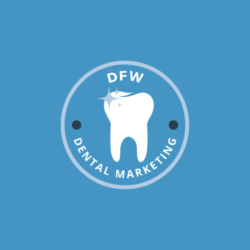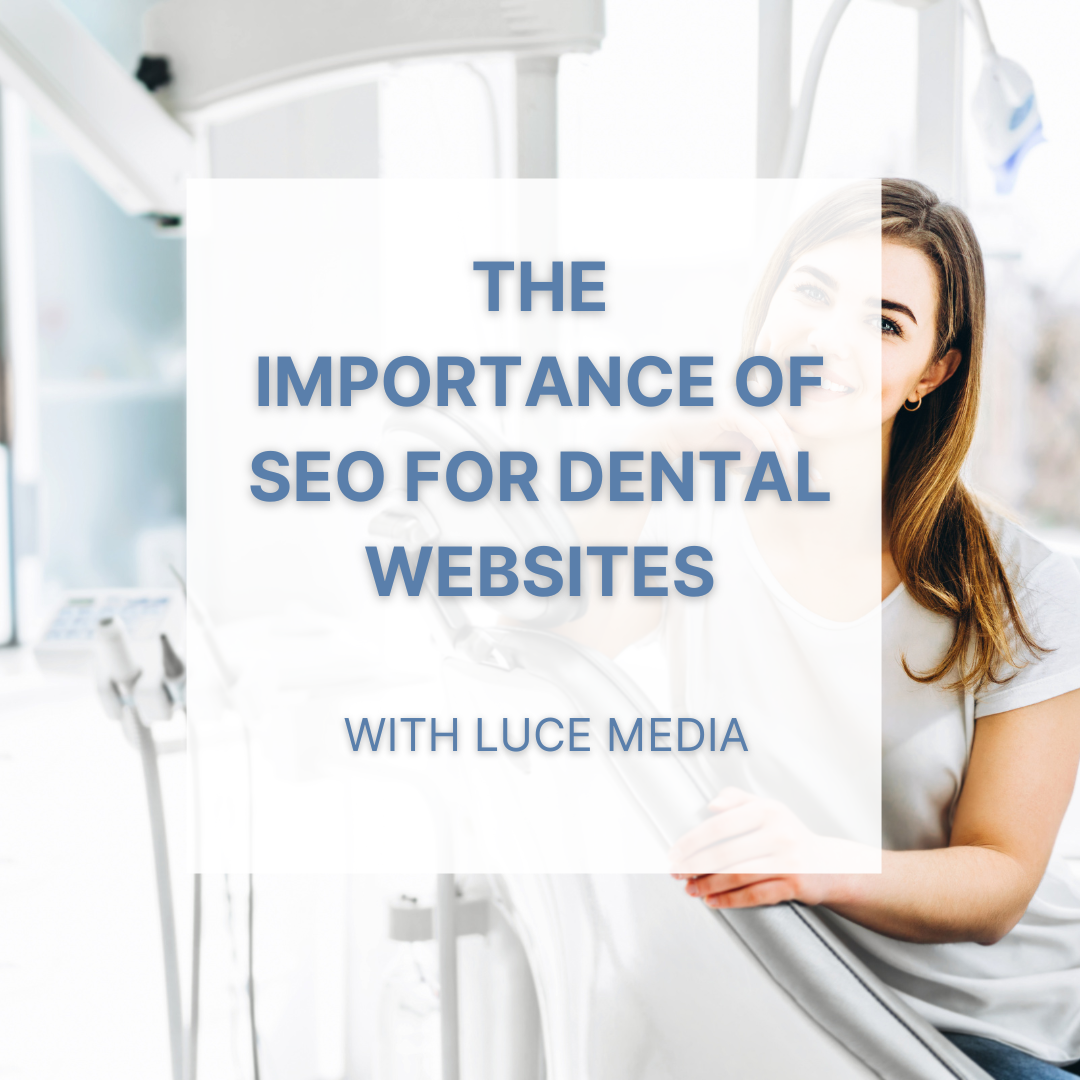In today’s digital age, it’s more important than ever for dental practices to have a strong online presence. One of the key components of a successful online strategy is search engine optimization (SEO). SEO refers to the practice of optimizing a website to rank higher in search engine results pages (SERPs).
In this blog post, we’ll explore the importance of SEO for dental websites and how it can help your practice grow.
Increased visibility

One of the main benefits of SEO is increased visibility. When potential patients search for dental services in your area, you want your website to appear on the first page of search results. Studies have shown that the vast majority of clicks go to websites that appear on the first page of search results, with the top few results getting the lion’s share of clicks.
By optimizing your website for relevant keywords and phrases, you can improve your chances of ranking higher in search results. This means more people will find your website and learn about your practice.
Improved credibility
When a potential patient searches for dental services, they are likely to visit several websites before making a decision. If your website appears outdated, unprofessional, or difficult to navigate, they may quickly move on to the next option.
On the other hand, a well-designed and user-friendly website can improve your credibility and make a positive impression on potential patients. By investing in SEO, you can improve your website’s appearance and functionality, which can help build trust with potential patients.
Increased website traffic
As we mentioned earlier, appearing higher in search results can lead to increased visibility and more clicks to your website. But SEO can also help you attract more targeted traffic to your website.
By optimizing your website for specific keywords and phrases, you can attract visitors who are actively searching for the services you offer. This means you are more likely to attract visitors who are interested in becoming patients.
Better user experience

Google and other search engines are constantly refining their algorithms to provide the best possible user experience. As a result, websites that offer a better user experience tend to rank higher in search results.
By investing in SEO, you can improve your website’s user experience by making it faster, more mobile-friendly, and easier to navigate. This can help improve your rankings and attract more visitors to your website.
Competitive advantage
SEO can give your dental practice a competitive advantage. If your competitors are not investing in SEO, or if they are not doing it as effectively as you are, you can gain an edge by appearing higher in search results.
By consistently ranking higher than your competitors, you can attract more potential patients to your website and ultimately grow your practice.
Targeted audience
As mentioned earlier, SEO can help you attract targeted traffic to your website. This means that you can reach the right people who are actively looking for your services. With the right SEO strategy, you can target specific keywords and phrases that potential patients use when searching for dental services.
For example, if you specialize in cosmetic dentistry, you can optimize your website for keywords like “cosmetic dentistry,” “teeth whitening,” “veneers,” and more. By targeting these keywords, you can attract visitors who are specifically interested in cosmetic dentistry services.
Better conversion rates
SEO can also help you improve your website’s conversion rates. Conversion refers to the process of turning website visitors into patients. By attracting more targeted traffic to your website, you are more likely to convert those visitors into patients.
In addition, by optimizing your website for specific keywords and phrases, you can create more targeted landing pages. Landing pages are specific pages on your website that are designed to convert visitors into patients. By creating landing pages that are specifically designed for each service or treatment you offer, you can increase your chances of converting visitors into patients.
Cost-effective marketing

SEO is also a cost-effective marketing strategy. Unlike other forms of marketing like TV ads, billboards, or direct mail, SEO is relatively inexpensive. While it does require an initial investment to optimize your website, the ongoing maintenance and optimization costs are minimal compared to other forms of marketing.
In addition, SEO has a long-term impact on your website’s visibility and traffic. While other forms of marketing may provide a short-term boost in traffic, they often have a limited impact. SEO, on the other hand, can help your website rank higher in search results for months or even years to come.
Local SEO
Local SEO is a subset of SEO that focuses on optimizing a website for local searches. For dental practices, local SEO is especially important since most patients are looking for dental services in their local area.
By optimizing your website for local searches, you can improve your visibility in Google’s “Local Pack.” The Local Pack is a section of Google’s search results that shows local businesses that match the user’s search query. For example, if a user searches for “dentist near me,” Google will show a map with local dental practices that are near the user’s location.
By appearing in the Local Pack, you can attract more local patients to your practice. Local SEO involves optimizing your website for local keywords, building local citations and directories, and managing your Google My Business listing.
Long-term results
Finally, SEO provides long-term results for your dental practice. Unlike other forms of marketing that have a limited impact, SEO can help your website rank higher in search results for months or even years to come.
While it does require ongoing maintenance and optimization, the long-term benefits of SEO make it a valuable investment for any dental practice. By consistently ranking higher in search results, you can attract more visitors to your website, convert those visitors into patients, and ultimately grow your practice.
Conclusion
SEO plays a critical role in the success of dental websites. With the growing competition in the dental industry, it is imperative for dental practices to invest in SEO to improve their visibility, attract more targeted traffic, and convert visitors into patients. By optimizing their website for search engines and focusing on local SEO, dental practices can gain a competitive edge and establish themselves as trusted authorities in their industry. Additionally, SEO is a cost-effective and long-term marketing strategy that can provide sustainable results and help dental practices grow and thrive in the digital age. Therefore, investing in SEO for dental websites is not just an option, but a necessity for any practice that wants to stay ahead of the competition and reach its full potential.

